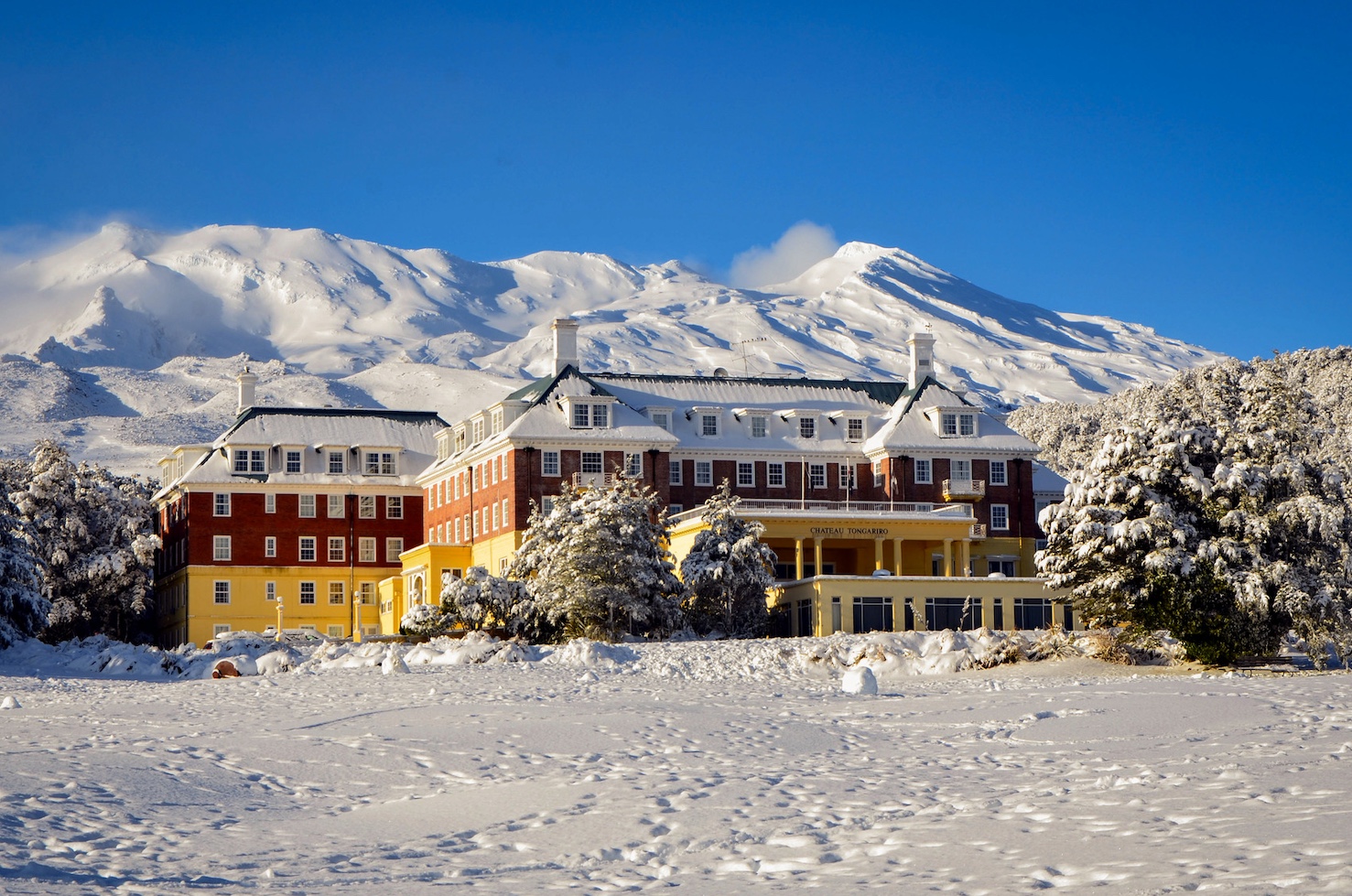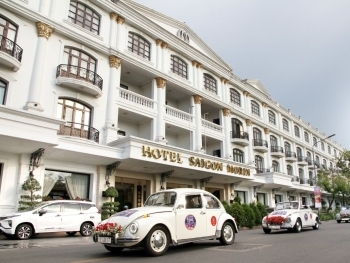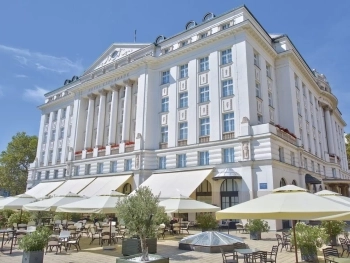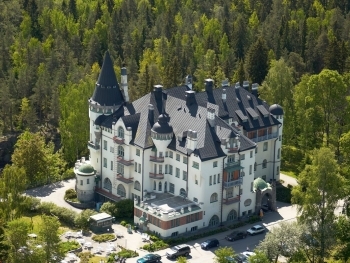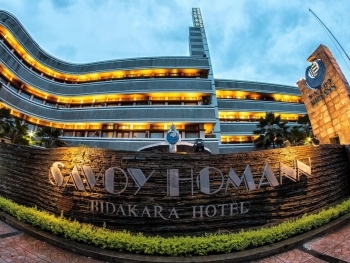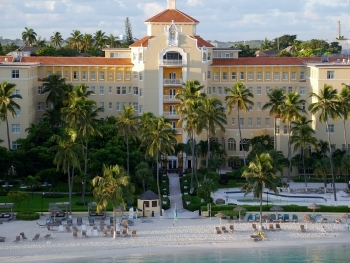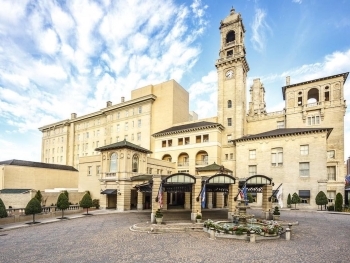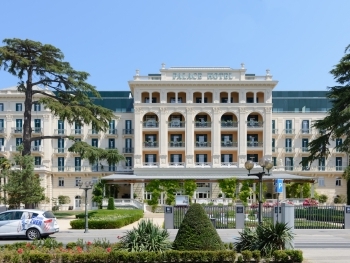Nestled amidst the breathtaking landscapes of Tongariro National Park in New Zealand, Chateau Tongariro stands as a testament to timeless elegance and rich heritage. This grand hotel, steeped in history, offers a unique blend of luxury, adventure, and cultural significance. It is more than just a place to stay; it is a destination that captures the spirit of the land and its people.
Historical Significance
Origins and Construction
Chateau Tongariro was conceived during a period when tourism in New Zealand was gaining momentum, particularly in the North Island. The idea for a grand hotel in this remote location was the brainchild of the New Zealand government, which sought to boost tourism and provide a luxurious base for visitors exploring the newly established Tongariro National Park. Construction began in 1929 and was completed in just over a year, with the hotel opening its doors on November 10, 1929.
The architectural design of Chateau Tongariro was inspired by the Georgian style, characterized by its symmetrical structure and classical proportions. The hotel was constructed using materials sourced locally, with a focus on blending harmoniously with the surrounding natural environment. This design choice was intended to highlight the beauty of the national park while providing guests with a sense of opulence and comfort.
The Early Years
Upon its opening, Chateau Tongariro quickly became a popular destination for both international travelers and local tourists. Its remote location, combined with the luxurious amenities and breathtaking scenery, made it an attractive retreat for those seeking both adventure and relaxation. The hotel played a significant role in promoting Tongariro National Park as a premier tourist destination, helping to put this part of New Zealand on the global map.
During the early years, the hotel hosted a variety of guests, including notable figures from around the world. It became a hub for explorers, mountaineers, and those interested in the unique geothermal and volcanic features of the region. The hotel's proximity to Mount Ruapehu, an active stratovolcano, added to its allure, offering guests the rare opportunity to witness volcanic activity up close.
Architectural Beauty
Design and Features
Chateau Tongariro's architectural design is a harmonious blend of classic and local influences. The exterior showcases a Georgian style with its symmetrical façade, large windows, and elegant portico. The use of local stone and timber in its construction not only adds to its aesthetic appeal but also ensures that the building is well-suited to withstand the local climatic conditions.
The interior of the hotel is equally impressive, with grand halls, high ceilings, and intricate woodwork. The lobby, adorned with chandeliers and luxurious furnishings, exudes a sense of grandeur and sophistication. The hotel features several dining rooms, lounges, and recreational facilities, each designed to provide guests with a sense of comfort and refinement.
The Ballroom and Dining
One of the standout features of Chateau Tongariro is its magnificent ballroom. This grand space, with its high ceilings, crystal chandeliers, and polished wooden floors, has hosted countless events over the decades. From grand balls and weddings to conferences and social gatherings, the ballroom remains a centerpiece of the hotel's social life.
The dining experience at Chateau Tongariro is equally remarkable. The Ruapehu Room, the hotel's main dining hall, offers a fine dining experience with a menu that showcases the best of New Zealand's culinary offerings. Guests can enjoy a range of dishes made from locally sourced ingredients, all while taking in the panoramic views of the surrounding mountains and forests.
Cultural and Natural Context
Tongariro National Park
Chateau Tongariro is located within Tongariro National Park, New Zealand's oldest national park and a UNESCO World Heritage Site. The park is renowned for its diverse landscapes, which include active volcanoes, lush forests, and alpine meadows. It is a place of significant cultural and spiritual importance to the Māori people, particularly the local iwi (tribe) of Ngāti Tuwharetoa.
The park's volcanic features, including Mount Ruapehu, Mount Ngauruhoe, and Mount Tongariro, are central to Māori mythology and cultural identity. These mountains are considered sacred, and their presence adds a profound spiritual dimension to the landscape. Visitors to the park can explore a range of natural wonders, from the geothermal fields and hot springs to the stunning alpine vistas and pristine lakes.
Adventure and Activities
For adventure enthusiasts, Chateau Tongariro serves as a gateway to a wide range of outdoor activities. The park offers some of the best hiking and trekking opportunities in New Zealand, including the famous Tongariro Alpine Crossing. This challenging trek takes hikers through diverse terrain, offering spectacular views of volcanic craters, emerald lakes, and rugged landscapes.
During the winter months, the nearby Whakapapa Ski Area on Mount Ruapehu becomes a hub for skiing and snowboarding. The hotel's location makes it an ideal base for winter sports enthusiasts, with easy access to the slopes and après-ski amenities. Additionally, the park offers opportunities for mountain biking, fishing, and horseback riding, ensuring that there is something for everyone to enjoy.
Modern-Day Chateau Tongariro
Renovations and Upgrades
Over the years, Chateau Tongariro has undergone several renovations and upgrades to ensure that it meets the needs of modern travelers while preserving its historical charm. These improvements have included the addition of modern amenities, such as high-speed internet, updated plumbing and electrical systems, and enhanced heating and cooling capabilities.
Despite these modernizations, great care has been taken to maintain the hotel's original character and architectural integrity. The preservation of its historic features, including the original woodwork, chandeliers, and furnishings, ensures that guests can still experience the elegance and grandeur of the early 20th century.
Sustainability Efforts
In recent years, Chateau Tongariro has also made significant strides in sustainability. Recognizing the importance of preserving the natural environment, the hotel has implemented various eco-friendly practices. These include energy-efficient lighting and heating systems, water conservation measures, and waste reduction initiatives. The hotel also supports local conservation efforts and promotes eco-friendly tourism practices among its guests.
Chateau Tongariro is more than just a hotel; it is a living piece of New Zealand's history and a testament to the country's natural beauty and cultural heritage. Its timeless elegance, combined with its stunning location and rich history, makes it a unique destination for travelers from around the world. Whether you are seeking adventure, relaxation, or a glimpse into the past, Chateau Tongariro offers an unforgettable experience that captures the essence of New Zealand's North Island.
From its grand architectural design and luxurious amenities to its deep connection with the surrounding landscape and Māori culture, Chateau Tongariro stands as a beacon of hospitality and heritage. As it continues to evolve and adapt to the needs of modern travelers, it remains a cherished landmark, offering a timeless retreat in one of the world's most beautiful and culturally significant locations.
